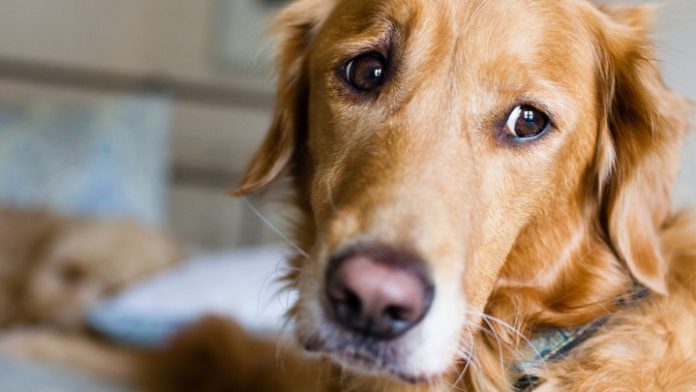Dog trembling. If you own a dog, then you may have faced having your dog tremble. The causes of this phenomenon may be different, so one should not immediately panic. Fortunately, this phenomenon does not always indicate a disease, so you do not have to worry immediately. Sometimes the reasons for this phenomenon are completely innocuous.
This article will give you an opportunity to find out why your dog is trembling and what you should do at that moment.
In most cases, some additional symptoms occur besides trembling the dog. These symptoms can be loss of appetite, whimper, saliva, and many others. Then, it can happen that the dog trembles only at night, tremble the whole body or just the head, adult dogs can shake, but also puppies, etc.
All these factors should be kept in mind before an accurate diagnosis is made. If you notice your dog is trembling and if you notice any additional symptoms, it is best to consult a veterinarian as soon as possible and seek professional help.
You will now see some of the most common situations in which a dog trembles, as well as other symptoms that occur in that situation. This will help you discover what causes your dog to tremble and what you can do about it. If you have a dog yourself and have noticed how it trembles, then this text will certainly be helpful to you.
Why is the dog trembling during sleep?
The dog usually trembles during sleep, and the cause is no less or less than the nightmares the dog experiences. Yes, you heard right. If your dog suddenly starts trembling during the night, it probably means he is dreaming of something bad.
However, this is not always the case. Sometimes trembling a dog in a dream can indicate that your dog has exciting dreams and is experiencing sleep adventures. However, it is not just nightmares that cause the dog to tremble in his sleep.
Sometimes a dog can shake in his sleep because he is cold, so in that case, he just needs to be covered.Of course, if your dog is trembling in his sleep, it is always recommended to wake him up and see what happens to him. In some severe cases, the cause of shaking in sleep may indicate a dog’s health problems.
Why does a dog tremble and not eat?
If you notice that your dog is trembling and not eating, then your dog is most likely to have severe digestive pain. It may be some spoiled food that your dog has eaten or some food that is not adequate for him. Sometimes your dog may shake and not eat if he or she is suffering from pancreatitis or gastritis.
Whatever the cause, the tremor, in this case, should stop within a day, and the appetite should return. If that doesn’t happen, then you need to take your dog to the vet.
In addition to these aforementioned diseases and conditions, tremor and loss of appetite are also a symbol of a disease called the puppy. If your dog is suffering from this disease, he or she will have a fever and may have a secretion from the eyes or nose.
Why is the dog trembling and whimpering?
Sometimes a dog’s crack may occur in conjunction with a whimper, so in that case, it is most likely a lot of stress, or a lot of fear, that has arisen in your dog. Stress and fear are actually considered the most common causes for a dog to shake.
What is important to know is that for a dog, stressful and scary are situations that you might never think could be stressful. A dog is an animal that can often be frightened by the arrival of strangers, listening to strange noises, etc. What you need to do at this point is to calm the dog by speaking in a gentle voice and stroking it.
In addition, your dog may squeal and trembles because he is injured. In this case, you should remember if your dog has recently suffered a physical injury.
Other possible causes if your dog is whimpering and shaking are digestive disorders, inflammation, bone problems, etc. Particular attention should be paid to symptoms such as howling, indolence, poor appetite, a long-term resting state, as well as licking of some parts of the body. If you notice any of these symptoms, it may be best to consult a veterinarian.
Why is a dog trembling and drooling?
A lot of dog breeds are drooling, so this is nothing out of the ordinary and there’s nothing to worry about. Salivation is generally characteristic of bulldogs, boxers and other breeds whose muzzles are shorter. They help the saliva to swallow more easily and digest it.
However, sometimes this dog drooling may indicate that they are not comfortable because they are most likely to have heat. Sometimes it can happen that the dog has seen his favorite food, so he started drooling.
These are some of the most common causes of why a dog is drooling and trembling, and generally, none of these gases are dangerous. However, in some severe cases, drooling the dog in combination with trembling may mean that there are some serious health problems. First of all, it may be epileptic seizures, food poisoning, problems with teeth, liver, etc.
Why dog is trembling his head?
Sometimes your dog may be trembling but not the whole body but just the head. In this case, it is mostly about ear infections, but it would be best to consult a veterinarian.
Why puppy is trembling?
Now that you have seen why your adult dog is trembling and how the problem should be treated, we will tell you why the puppy shakes as well as what you can do about it. In most cases, the puppy will shake if there are any parasites in the gut that will cause vomiting and diarrhea in the puppy.
In addition, a common cause of shivering in a puppy may be low sugar or low calcium levels in the body. Certainly, if you notice your puppy is trembling, it would be best to seek professional help.
These would be some of the most common causes why your dog is trembling, whether it’s an adult dog or a puppy. We hope that this text has been helpful to you and that you will be able to adequately respond to the problem your dog has next time.
However, if you still cannot determine what your dog is and is trembling and if you notice your dog is behaving differently than usual, then you should take the situation a little more seriously and consult a veterinarian.
The most common symptoms that indicate that the situation is not harmless are loss of appetite and malpractice of the dog, prolonged sleeping and sleeping state of the dog, vomiting, and diarrhea, etc. Overall, it is important that you consult a veterinarian on time and seek professional help with your dog.
What you can do to at least calm your dog’s condition is give him some water or appropriate antibiotics.
What is most important is that you do not start to panic right away because it may not be serious. All in all, it is best to consult a veterinarian as soon as possible to establish the correct diagnosis.





